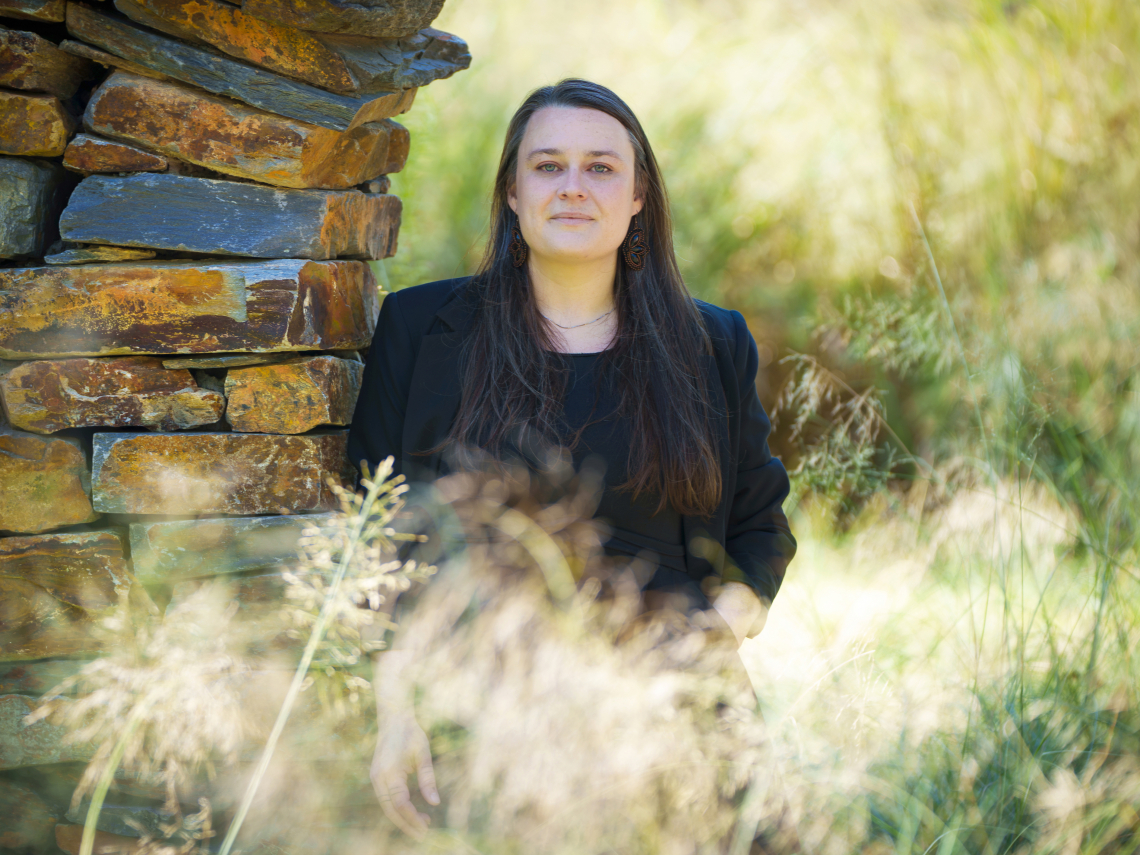Repairing Our Social Erosion with Environmental Historian Hannah Conway
Many of us have complicated relationships with people. Hannah Conway has a complicated relationship with a place: the South.
From growing up a self-described “woodland weirdo” in Appalachia to spending much of her graduate research in the lower Mississippi Delta region, Duke’s newest assistant professor of History has an affinity for the southeastern portions of the U.S. A scholar of environmental and climate justice, a crucial part of her research process involves approaching environmental history with an understanding and care for the people at the center of it.
For generations, much of the lower Mississippi Delta has been used for the resources it provides, she explains. Maintained for the benefit of growing and transporting crops as well as the production of fossil fuels and other petrochemicals, little attention was paid to building a sustainable infrastructure to support the people living there. This history of extraction started a long tradition of economic and racial disenfranchisement in the region, which dictated Conway’s approach to her research.
“I wanted to think of this place as home and really live there, and not replicate these kinds of extractive ways,” she says.
Through her research and teaching, Conway shows that the systems we talk about when we say “systemic justice” go back further than you might think.
“You cannot separate the levees that now sit along New Orleans and the levees from 1717, because they were built right on top of each other,” she says.
“These roads that we think of as crumbling,” she says, “if you look at history, they go back to old Indigenous trails.”
A citizen of the Cherokee Nation herself, Conway studies the ways environmental and racial justice are connected historically, and Indigenous history in the U.S. is one place to start.
“I think particularly trying to understand, as an Indigenous person, how we fit in this environmental justice puzzle,” she says. “We’re rendered out of the picture in the South by the 1830s. If we only look at the 20th century, that isn’t when racism emerged. That’s where I think history is a really important part.”
Her dedication to the work of restorative justice for these Southern communities dictated her professional path.
“I like working with communities and I really questioned whether or not continuing to work in academia was going to enact material change,” she says. “How we actually improve material conditions for people is really important to me.”
It was the Duke Climate commitment that convinced her to come to Duke. She was encouraged by the opportunity to work with faculty from across Trinity and the Nicholas School for the Environment to combine methods from different disciplines in tackling the climate crisis.
Coming to Durham is a return to home for Conway. “I was ready to leave academia if I wasn’t staying in the Southeast,” she says, baffling many in her cohort.
Her personal and ancestral connection to the South keeps her attuned to the tension of people living in environments being destroyed by the same industries that promote economic growth and stability. She knows that while it might seem counter-intuitive to see these workers as environmental allies, they have much to lose from destructive environmental practices.
“You’ve got to find a way to have solidarity with people who work in coal mines and on oil rigs,” Conway says. “There's a reason that we've constructed a certain kind of masculinity and a certain kind of profession in a way to be anti-environment. Industries want us to feel like we have to choose between having a healthy environment and having a stable income — but that’s a forced choice. In the context of local folks, the blame for environmental degradation shouldn’t be on individual people who work in coal mines or for the fossil fuel industry to survive under capitalism.
“A lot of crawfishermen trend towards what people might consider more conservative politics that don’t line up with environmental coalitions, but their livelihood is dependent on the health and vitality of the ecosystem of the swamp, of the Atchafalaya Basin of the bayous,” she says. “And they recognize that the way the oil industry has been allowed to operate impacts the community, economics and the environment.”
This solidarity between both activists and workers is the part she sees as missing from the conversation around environmental justice.
“My field site in Mississippi is a really contested site,” Conway explains. “It’s positioned as a battle between farmers who want these pumps that are going to drain floodwaters out of what’s very agriculturally rich land and environmentalists who worry about wetlands. Actually, neither of these people offer an environmental justice solution.
“We can sit on the left or the right, but I think a lot of these things exist outside of that binary,” she says.
The way forward? It starts with repairing social erosion.
“It is important to help people talk about what is happening in the South in a generous way,” she says. “The same ocean that will swallow New Orleans will swallow Boston.”
Conway wants to help make these ideas come alive for her students. She hopes that the historical thinking she teaches will help them care about the places and the people they encounter.
“I would like for students to walk out with a sliver of hope,” Conway says. “And hopefully, with a little less climate doom, because it's just oppressive.
Her research philosophy is reflected in her teaching. “I would love for folks to leave feeling more connected to their home, to their environment, to their neighbors and understanding how they are a part of that history,” she says.






